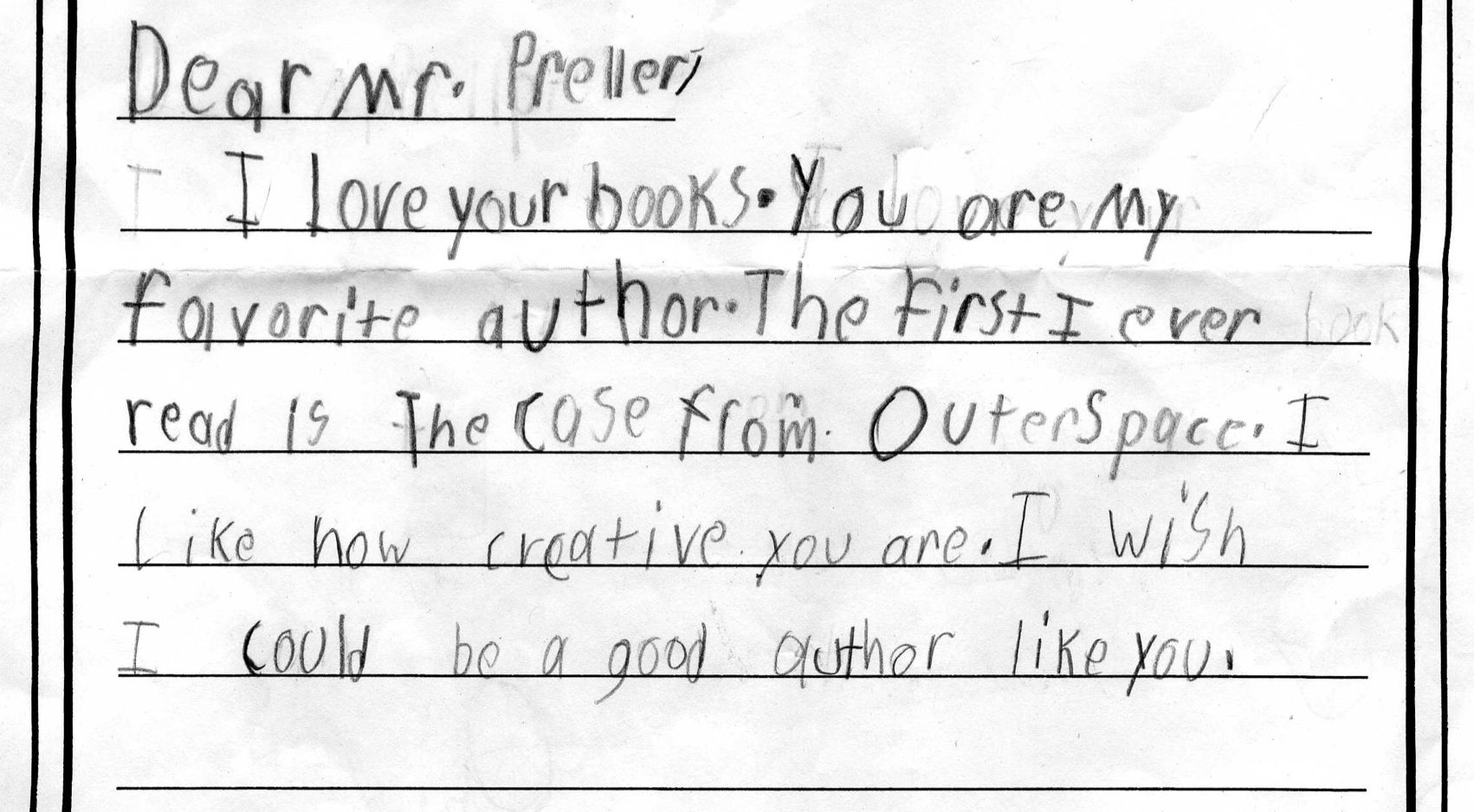–
I recently received a letter that made me think. And without disclosing my own conclusions, I thought I’d share that letter here, then pass along my reply, as well as provide an excerpt of the offending scene.
If you’d like, I’d be curious to hear your thoughts.
I almost titled this, in part, “a writer listens.” But that sounded far too pretentious and self-satisfied. Yet it is what I hoped to convey to Cathy in Nova Scotia. That her thoughts are worth hearing — these are good conversations to have — that Cathy’s feelings are valid and valued. I’m happiest with the talking and the listening. We need more of that in our world, less about who is “right” and who is “wrong,” fewer assignations of blame.
It’s worth noting, too, that Cathy wrote to me with a question rather than an accusation. More than anything, that’s what started us off on the right foot.
–
Hi James,
–
I am a literacy coach working in Nova Scotia. I have been putting several of your books from the Scary Tales series in the hands of students. They are really enjoying them. I have the task of compiling a list of books to be purchased for schools. In preparation, I am reading and completing a bias evaluation tool on each book. I am currently, “Scary Tales: One-Eyed Doll”. On page 59, I encountered the sentence, “No, thanks, Malik thought. He had bigger dreams.” This was in response to the custodian saying Malik may take his job one day. I question how this line could be interpreted by the reader and does it imply that a custodial job is less than?
–
I thought I would bring this to your attention as I was enjoying your book but this sentence made me stop as it makes me feel uncomfortable.
–
Kind regards,
–
Cathy
–
I replied . . .
–
Cathy,
–
 Thank you for this note, and for sharing my books with struggling readers. It was always in the back of my mind with this series, that older readers — thanks to the sophisticated look of the artwork — would embrace and succeed with these high-interest, easy-to-read stories.
Thank you for this note, and for sharing my books with struggling readers. It was always in the back of my mind with this series, that older readers — thanks to the sophisticated look of the artwork — would embrace and succeed with these high-interest, easy-to-read stories.–
Yes, I believe that I did intend for Malik’s thought to be exactly that: He had bigger plans.
–
But I can see where the phrasing of that might have given you pause. If I had the chance of a do-over today, I’d make a simple change: He had other plans.
–
That would remove the unfortunate (embedded) value judgment.
–
It is complicated. Because if we are honest, not many people “dream” of becoming custodians, service workers. This doesn’t mean that they are “less” than anyone else or unworthy of our respect. It’s just not where Malick hopes to end up; he’s dreaming big. Writers put thoughts into the minds, hearts, perceptions of invented characters — but at the same time have to be vigilant about what we (they/I) put out into the world. I wish I found a different way to express Malik’s ambitions without making the comparison. Still, there’s “truth” in his thoughts and he treats the custodian with kindness and respect.
–
I am grateful for the sensitivity of your reading. I’m glad you pointed that out to me. I’ll try to do better in the future.
–
James Preller
–
–
–
–
HERE’S AN EXCERPT FROM THE SCENE IN QUESTION (Chapter 9, One-Eyed Doll)
–
It was a quick bike ride to the nursing home — if you pedaled like your hair was on fire.
–
Malik made it in six minutes flat.
–
His mother had worked in the kitchen since he was a baby. Malik was a familiar face to the nurses on staff. When he was little, before he could fend for himself, Malik spent a lot of time in the back rooms. Drawing pictures, building with Legos, eating snacks, looking at picture books. It was cheaper than hiring a babysitter.
–
The home was a curious world, full of odd smells and old people. Most folks were frail, like glass figurines on a shelf you shouldn’t touch for fear they might break. Some still had sharp minds. They played cards, watched tv, and carried on conversations. Then there were the folks who seemed . . . finished. Like burnt-down candles. When Malik walked the halls, he would sometimes glimpse them sitting in their rooms. Alone and silent, waiting for a bus that would never come.
–
It was sad, and Malik tried not to think about it.
–
“Say, Malik! What are you doing here today?” Curtis the custodian chirped. He stopped pushing a mop around the floor and, instead, leaned on it with both hands. Happy to pause and chat.
–
“Just thought I’d stop by,” Malik said.
–
“Getting big!” Curtis observed. “If I don’t watch out, you’ll be taking my job.”
–
No, thanks, Malik thought. He had bigger dreams. But he said with a grin, “I just might.”
–
He started to walk away, then thought twice. “You’ve been here a long time, right?”
–
Curtis looked up, as if the answer was written on the ceiling. “Twenty years, next September.”
–
Malik whistled. He decided to take a shot. “You remember the old place on my block. Right? The one nobody lives in.”
–
The brightness left the custodian’s eyes. “I know it,” he said. “That place is bad business. Bad voodoo over there.”
–
“Do you know anything about . . .” Malik said, stepping forward. “I mean, can you tell me about it?”
–
“It’s not my place to say,” Curtis said.
–
“It’s important,” Malik said. “It means a lot to me. Please.”
–
Maybe the old man was in a talkative mood that day. Maybe there was something in the way Malik asked. The look in his eyes.
–
“There’s a patient here,” Curtis said. “Miss Delgado. She was the last person who lived there — but that was, oh, thirty-something years ago. She used to be in the mental hospital, you know, the asylum. But she’s no trouble anymore.”
–
“She’s here?” Malik asked.
–
“Room 17, just down the hall,” Curtis said. “I don’t think she can help you, Malik. She hasn’t said ten words in all the time she’s been here.”
–
“Can I see her?” Malik asked.
–
Curtis looked up and down the empty hall. “She been through enough. Leave an old woman alone.”
–
“Please, I’ll be respectful,” Malik said. “Just for a minute?”
–
“If you get caught,” Curtis said with a sigh, “I don’t know anything about it. Understand?”
–
He turned in the opposite direction from Room 17 and pushed the mop down the hall. The conversation was over. Malik was on his own.
–
–

Illustration by Iacopo Bruno from SCARY TALES: ONE-EYED DOLL, captured by iPhone (so forgive the poor quality).
–
–
–
THERE ARE 6 TITLES IN THE SCARY TALES SERIES, MOST POPULAR IN GRADES 3-5 . . .
–
–
–
 3. In storytelling, there’s the “Rule of 3.” We see it in humor, particularly, i.e., his bedroom smelled of old socks, axe body spray, and stale cheese. For some reason, it’s funniest with 3 items. Four is too many; two is not enough. Another example would be, oh, let’s see, a penguin who is determined to fly. For some reason, it appeals to the mind when we show the penguin fail once, twice, three times . . . and then succeed (in some way). I think that’s because it takes three to establish a pattern, a rhythm. It’s somehow comforting to the reader. My old picture book, Hiccups for Elephant, is extremely mathematical, since it is centered around patterns and repetition. All the animals are asleep. Except for elephant. Chimp wakes up, offers advice. It doesn’t work. Hiccup! Lion wakes up, offers advice. It doesn’t work. Hiccup! Zebra wakes up, offers advice. It doesn’t work. Hiccup! See that, Natalie? One, two, three. Now, finally, mouse wakes up, offers advice. It works! Ah-choo! The funny twist at the end. Simple mathematics.
3. In storytelling, there’s the “Rule of 3.” We see it in humor, particularly, i.e., his bedroom smelled of old socks, axe body spray, and stale cheese. For some reason, it’s funniest with 3 items. Four is too many; two is not enough. Another example would be, oh, let’s see, a penguin who is determined to fly. For some reason, it appeals to the mind when we show the penguin fail once, twice, three times . . . and then succeed (in some way). I think that’s because it takes three to establish a pattern, a rhythm. It’s somehow comforting to the reader. My old picture book, Hiccups for Elephant, is extremely mathematical, since it is centered around patterns and repetition. All the animals are asleep. Except for elephant. Chimp wakes up, offers advice. It doesn’t work. Hiccup! Lion wakes up, offers advice. It doesn’t work. Hiccup! Zebra wakes up, offers advice. It doesn’t work. Hiccup! See that, Natalie? One, two, three. Now, finally, mouse wakes up, offers advice. It works! Ah-choo! The funny twist at the end. Simple mathematics.  aware of when I’m 1/3 of the way through, 1/2 way through, 2/3 through, etc. It’s not just racing to the end, it helps me sense the shape and body of the story. Do you watch Ted Lasso? That was originally conceived as a three season arc. A beginning, middle, and end. Season 1 was wonderful because it set up the situation, introduced all the characters, established the problem. Season 2 suffered, in my opinion, because it was the middle. The inevitable sag. Middles are very, very difficult to write. But it will lead us to the conclusion, the end, Act 3: the satisfying resolution. Simple math, yes. It’s everywhere.
aware of when I’m 1/3 of the way through, 1/2 way through, 2/3 through, etc. It’s not just racing to the end, it helps me sense the shape and body of the story. Do you watch Ted Lasso? That was originally conceived as a three season arc. A beginning, middle, and end. Season 1 was wonderful because it set up the situation, introduced all the characters, established the problem. Season 2 suffered, in my opinion, because it was the middle. The inevitable sag. Middles are very, very difficult to write. But it will lead us to the conclusion, the end, Act 3: the satisfying resolution. Simple math, yes. It’s everywhere. 
























